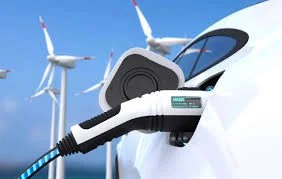 In a landmark moment for the continent’s automotive and green energy sectors, South Africa has officially launched Africa’s first comprehensive electric vehicle (EV) initiative. This announcement underscores South Africa’s commitment to reducing carbon emissions and enhancing sustainable energy practices within its transportation infrastructure.
In a landmark moment for the continent’s automotive and green energy sectors, South Africa has officially launched Africa’s first comprehensive electric vehicle (EV) initiative. This announcement underscores South Africa’s commitment to reducing carbon emissions and enhancing sustainable energy practices within its transportation infrastructure.
The program, inaugurated today in Johannesburg, will introduce a series of electric vehicles and establish charging networks across major urban areas. This marks a significant leap forward in Africa’s transition towards cleaner energy and contributes to global efforts to mitigate the environmental impact of fossil fuels.
The South African government has been working closely with several stakeholders, including international EV manufacturers, local industries, and green energy organizations, to design and implement this project. By facilitating partnerships with private investors, the government aims to foster job creation within the automotive sector, particularly as the production and maintenance of electric vehicles require specialized skills.
According to the Department of Transport, the EV initiative will initially focus on urban centers where charging infrastructure will be established. The government has pledged significant investment in building charging stations along major highways and within metropolitan areas. The program also outlines plans to introduce incentives to encourage EV adoption, including subsidies on electric vehicle purchases, tax relief, and support for converting traditional fueling stations to electric charging points.
As Africa’s leading automobile manufacturer, South Africa’s move is expected to influence other African nations to explore electric transportation. The continent, long dependent on fossil fuels for transportation, could potentially reduce its greenhouse gas emissions significantly if other countries adopt similar initiatives. The African Development Bank and the International Energy Agency have recognized the significance of South Africa’s transition, noting that the initiative could set a precedent for green innovation across Africa.
Local automotive companies are also anticipated to benefit from this shift. South Africa’s domestic auto manufacturing industry, a significant contributor to its economy, is expected to evolve with the adoption of EVs, creating new markets and promoting technical innovation.
This initiative represents a bold step for South Africa as it seeks to reduce pollution, enhance urban air quality, and reduce dependency on non-renewable energy sources. With a growing global demand for EVs, South Africa’s leadership on the African continent positions it as a pioneer in green technology and sustainable energy practices.



















